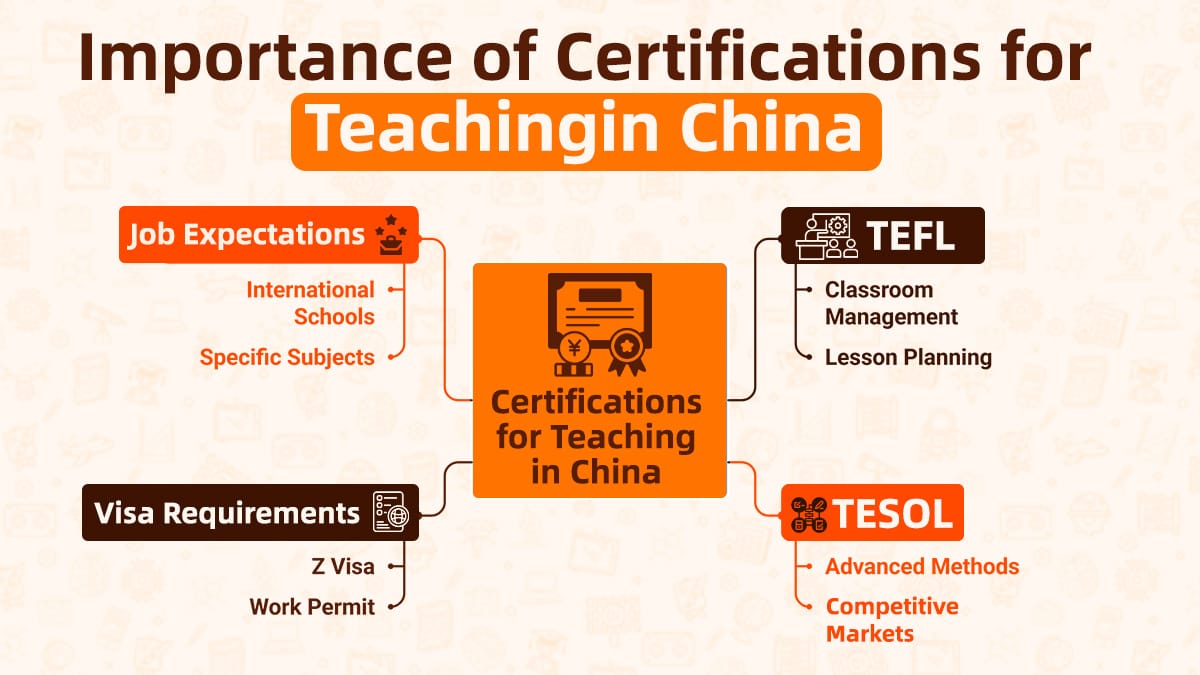Introduction
China needs more foreign teachers. This creates good opportunities for people who want to join a Teach Abroad Programme. Many international schools, public school systems, and private schools across East Asia seek English teachers and subject experts.
Teaching in China gives you more than a job. You get cultural immersion while earning good money. Schools like BASIS International School Shenzhen and Shanghai High School International Division offer exciting workplaces.
Getting the right certifications opens doors to these jobs. Schools need teachers for many subjects. You could be a math teacher at Beijing Haidian Foreign Language Academy. The demand goes from big cities to places like Fuzhou City and even Hainan Island.
Ready to kickstart your teaching journey in China? Book a free consultation with Alifa today. We’ll guide you through certifications, visas, and school placements—so you can focus on teaching, not paperwork. One call is all it takes to begin your adventure abroad.
Why Certifications Are Essential for Teaching Jobs in China

You must get certifications to teach in China. To work legally as a foreign teacher, you need a TEFL, TESOL, or another teaching certificate. You can also use at least 2 years' teaching experience instead.
TEFL opens teaching doors.
For teaching jobs in China, you need a 120-hour certificate. In almost all cases, you need a TEFL, TESOL, or CELTA certificate to get a legal teaching job. This certification helps you when applying to schools like English First or Zhejiang Haicheng Education Technology Company Limited.
TEFL certification covers key teaching skills. You learn classroom management, lesson planning, and student engagement methods. These skills help you succeed at a foreign-run school or when working with the Julia Gabriel Centre.
TESOL for Better Opportunities
TESOL certification gives you an edge in tough markets. A good 150-hour course covers advanced teaching methods, lesson planning, and classroom management. This training is perfect for competitive markets like China. Schools like Shanghai AiRuiKe International Institute of Education and Vanke School Pudong value this training.
Help us connect you with the best teaching opportunities in China.
Take our 1-minute survey to share your goals, preferences, and what matters most in your teaching career.
Visa requirements need certification.
Your certification directly affects your work visa application. Before you can apply for a Z visa, you must first get a teaching job offer from a licensed school. To work legally as a teacher in China, you must have the proper visa and work permit.
Schools that give full visa/work permit support need to see your credentials. Places like RDFZ Beijing and Dipont Huayao Collegiate School Kunshan help certified teachers get their Z visa processed smoothly.
Job Expectations Match Certifications
Different schools have different job expectations. International schools teaching Key Stage 3 or AP World History need teachers with proper training. Your certification shows you can handle these academic demands.
You might want to be a teacher of maths at Maple Bear Canadian Schools. Or you could be a middle school biology teacher at Lakeshore Preschool Chongqing. Either way, certification proves you are ready.
Step-by-Step Guide to Getting Certified

Getting certified for teaching in China follows a clear process. Here is exactly what you need to do.
Step 1: Check Your Basic Requirements
You need a bachelor's degree. You need a passport from a native English-speaking country. You should have a TEFL certificate and some teaching experience. Age limits are 18-60 for men and 18-55 for women.
If you plan to teach subjects including math or science, your degree should relate to your teaching area. Schools like Hangzhou Dipont School of Arts and Science value subject knowledge.
Step 2: Choose Your Certification Type
Pick between TEFL, TESOL, or CELTA based on your goals. TEFL works well for general English teaching jobs. TESOL suits those wanting advanced training methods. Both meet China's requirements when they are 120+ hours.
Online options like Preply Online offer flexibility. In-person courses through programs like Teacake Travels give hands-on experience. Choose what fits your schedule and learning style.
Step 3: Complete Your Course
A 120-hour or 140-hour course usually lasts 4–6 weeks. It gives you full training. You will study teaching methods, classroom management, and cultural adaptation.
Many courses now include modules on teaching in East Asia. This helps prepare you for cultural immersion in Chinese schools.
Step 4: Get extra documents ready.
You will need several documents. Get authenticated copies of your academic degrees and TEFL certificate. Get two recent passport-sized photos. Get a police background check certificate. Get a recent health check report.
Start gathering these documents early. Authentication takes time. This is especially true if you’re applying from South America or faraway places.
Step 5: Apply for Teaching Positions
Use your certification to apply for jobs. Schools in Hong Kong, mainland China, and other East Asian locations actively recruit certified teachers. Your certification helps you meet their hiring standards.
Want to put your brand in front of families, students, and education-focused readers? We're inviting select partners to advertise with us on our trusted blog.
Want to get featured? Click 'Learn more' and submit a story for us to include.
Applying for Certifications for Teaching Jobs in China
Your certification opens specific job paths. Here is how to use it well.
Target International Schools
International schools like BASIS Bilingual School Shenzhen actively recruit certified teachers. They offer good packages and full visa/work permit support. Your TEFL or TESOL certification meets their hiring requirements.
Schools teaching the IB curriculum need teachers who understand international education standards. Your certification shows you have this training.
Apply to public school programs.
Public school positions offer stability and cultural immersion opportunities. Schools like Hangzhou Primary School work with certified foreign teachers through government programs. These positions often include Mandarin Chinese language support.
Some programs place teachers in smaller cities. You might teach in areas celebrating events like the Harbin Ice Festival. This gives you unique cultural experiences.
Consider subject-specific roles.
If you want to be a math teacher or humanities teacher, highlight your subject knowledge along with your certification. Schools like Beijing Haidian Kaiwen Academy need teachers for specific subjects.
Your certification proves you can teach well. Your degree shows subject knowledge. This combination appeals to schools offering advanced curricula.
Work with placement agencies
Companies like English First and Jia Community help certified teachers find positions. They have relationships with schools across China. They can match you with good opportunities.
These agencies often provide full visa/work permit support. This makes your transition smoother.
Overcoming Challenges
Teaching in China presents unique challenges. Here is how to handle them well.
Language Barriers
You do not need to speak Mandarin Chinese fluently. Basic phrases help. Many international schools use English as the primary language. However, learning some Chinese shows respect for local culture. It helps with daily life.
Consider taking online Chinese lessons before you arrive. This preparation makes cultural immersion easier.
Visa Processing Delays
The visa process typically takes 4-6 weeks. This depends on the documents and processing. Start early and make sure all documents are properly authenticated. Schools providing full visa/work permit support guide you through this process.
Keep copies of everything. Document requirements can change. Having backups helps to avoid delays.
Cultural Change
Teaching methods in China may differ from your home country. Chinese students often expect more formal classroom structures. Your certification training covers these cultural differences.
Join teacher communities online before arriving. Experienced teachers share practical tips for classroom management and cultural adaptation.
Finding Housing
Many schools help with housing. This is especially true in expensive cities like Hong Kong. Others provide housing allowances. Research your specific location's housing market and costs.
Some teachers prefer international housing compounds. There they can connect with other expatriates. This choice affects your cultural immersion experience but may ease adjustment.
Contract Negotiations
Understand your contract terms fully. Look for schools offering full visa/work permit support, health insurance, and flight reimbursements. Do not accept positions from unlicensed schools. This creates legal problems.
Ask about professional development opportunities. Good schools invest in their teachers' growth through training and conference attendance.
Conclusion
Getting certified for teaching in China wraps up your path to exciting opportunities. They include steps that build confidence and skills for roles in schools. Ready to step into a classroom? Certifications make the process straightforward and fun.
First, think about how TEFL or TESOL fits your dreams. These tools help you apply for jobs and handle everyday challenges. Will you teach English or dive into subjects like math? The right certification boosts your resume and eases worries about starting fresh.
Remember, it's not just about papers; it's your gateway to growth. Schools value these qualifications, leading to stable positions and new friends. What holds you back? Overcome doubts by reviewing what you've learned and planning ahead.
Ready to kickstart your teaching journey in China? Connect with Alifa Education Services today. We’ll guide you through certifications, visas, and school placements—so you can focus on teaching, not paperwork. One call is all it takes to begin your adventure abroad.
Related Articles















Member comments